A New Cold War?: Sharp Power, Strategic Competition, and the Future of U.S.-China Relations

The AIIB After Two Years
For directions to the Jen-Hsun Huang Engineering Center, please click here.
The Asian Infrastructure Investment Bank (AIIB) commenced operations on January 16, 2016. The Bank has approved 24 projects totaling US$4.26 billion to date, and its approved membership totals 84 with 64 members having completed all membership requirements and 20 prospective members in the process of finalizing their membership.
President Jin Liqun will give his assessment of the bank’s first two years – its accomplishments and challenges – and the future direction of the Asian Infrastructure Investment Bank. What is the potential impact of AIIB’s financing for regional infrastructure, trade connectivity and economic relations? How can multilateral institutions and various stakeholders best address the US$26 trillion infrastructure gap (from 2016 to 2030) in Asia? How is the AIIB distinguishing itself from other multilateral development banks like the World Bank and the Asian Development Bank? What is the AIIB’s commitment and contributions toward global economic governance and best international practices?

Mackenzie Room
Jen-Hsun Huang Engineering Building, 3rd Floor
475 Via Ortega, Stanford, CA 94305
An Expanding Toolkit: The Evolution of Governance in China
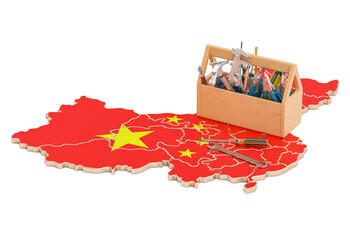
Mortality declines in rural China yet no clear link to universal health insurance
Rural areas of China have made remarkable progress in reducing adult mortality within the past 15 years yet broadened health insurance was not a casual factor in that decline, according to a new study by an international research team that includes Asia Health Policy Program Director Karen Eggleston.
The New Cooperative Medical Scheme (NCMS), a government-subsidized insurance program that began in 2002-03, expanded to cover all of rural China within a decade. Examining NCMS and cause-specific mortality data for a sample of 72 counties between 2004 and 2012, the researchers found that there were no significant effects of health insurance expansion on increased life expectancy.
The study, published in the September issue of Health Affairs, showed results consistent with previous studies that also did not find a correlation between insurance and survival, although much research confirms NCMS increased access to healthcare, including preventive services, and shielded families from high health expenditures.
Commenting on the study, Eggleston said population health policies remain central to China’s efforts to increase life expectancy and to bridge the gap between rural and urban areas.
Eggleston also noted that multiple factors beyond the availability of health care determine how long people live, and anticipates the research team will continue to explore the impacts of NCMS by extending the study to look at infants and youth.
Read the study (may require subscription) and view a related article on the Stanford Scope blog.

Korea experts encouraged by Moon Jae-in election win, hopeful over prospects for inter-Korean dialogue
Researchers urge Moon Jae-in to form a close working relationship with Donald Trump and to establish a new special envoy role for North Korea policy emulating the “Perry Process”
Researchers from the Shorenstein Asia-Pacific Research Center (APARC) said they are optimistic about the election of South Korean president Moon Jae-in who assumed office last week following waves of protest across the country.
Now that the vacancy left in the wake of former President Park Geun-hye’s impeachment has been filled, the South Korean government needs to work to strengthen bilateral relations with the United States amid escalating tensions in Northeast Asia, they said.
The Moon administration should immediately engage U.S. President Donald Trump and his senior staff at the White House and government agencies, said Kathleen Stephens, the William J. Perry Fellow at Shorenstein APARC.
“Moon would do well to establish a personal relationship with Trump,” said Stephens, who was U.S. ambassador to South Korea from 2008 to 2011. “The new administration must set up a meeting as early as possible and be ready to engage on a range of issues.”
“In a sense, Moon has to play catch-up,” said Shorenstein APARC Director Gi-Wook Shin, who noted that Trump already held in-person meetings with other Asian heads of state in the United States, including summits with Chinese President Xi Jinping and Japanese Prime Minister Shinzo Abe.
Shin added that a coherent U.S. strategy toward Asia and senior staff appointments in the State and Defense Departments would also aid in supporting the foundation upon which the South Korean and American governments work together on policy challenges, especially North Korea.
North Korea’s nuclear and missile capabilities have become more and more advanced over the past few months, and provocations have continued to ratchet up, including its firing of a ballistic missile that landed in the sea near Russia on Sunday and repeat threats to conduct a sixth nuclear test.
The Moon administration must focus on establishing trust and cooperation with the Trump administration because it is the only pathway to finding a resolution to North Korea’s program, said Siegfried Hecker, a senior fellow at the Center for International Security and Cooperation, an additional center in the Freeman Spogli Institute.
“Any solution must be compatible with the interests of Seoul, but it has to be done in concert with Washington to get Pyongyang’s attention,” said Hecker, who served as director of the Los Alamos National Laboratory and has traveled to North Korea seven times since 2004 to survey its nuclear facilities.
During the campaign, Moon repeatedly spoke of his proposals to reengage the North Korean regime, such as holding talks with its leader Kim Jong-un and re-opening Kaesong Industrial Complex, a joint economic zone on the North Korean side of the border.
Stephens and Shin said Moon’s proposals for North Korean engagement would be a step in the right direction if pursued in due time and led under the direction of a special envoy from South Korea emulating the American “Perry Process.”
The Perry Process, proposed by former U.S. Secretary of Defense William Perry and implemented in the late 1990s under the Clinton administration, entails the appointment of a senior-level, bipartisan representative to pursue a two-track approach of engagement through joint projects and of continued dialogue on denuclearization with North Korea.
Appointing one person in South Korea to lead North Korea policy would help centralize and streamline its organization, which currently requires coordination of activities across dozens of government agencies, the two researchers noted.
“We recognize that establishing such a position and filling the position would be far from easy,” said Shin, co-author of the study Tailored Engagement. “But the magnitude of the nuclear crisis requires restructuring the way in which the South Korean government deals with North Korea, achieving domestic consensus, and shoring up international support for its efforts.”
The United States, China, Japan and Russia are the key international countries concerned with the peace and stability of Northeast Asia, yet South Korea has both an acute need and the potential to assume greater leadership of North Korea policy, said Shorenstein APARC Fellow Thomas Fingar.
China, as North Korea’s largest trade partner, exercises influence over North Korea by maintaining a commercial relationship in the hope of avoiding a collapse of the regime. Yet, its leverage only goes so far, he added.
The Moon administration should consider the limits of Chinese influence before making policy decisions regarding North Korea, Fingar said, for example, whether to freeze or remove the U.S. anti-ballistic missile system, Thermal High Altitude Area Defense (THAAD), deployed last April in South Korea, which the Chinese government strongly opposed.
“There is little that Beijing can or will do that would persuade Pyongyang to be more receptive to initiatives from Seoul than it would otherwise be,” said Fingar, a China specialist who served as chairman of the U.S. National Intelligence Council. “Seoul should not ‘pay’ much to obtain Chinese assistance because China already supports reengagement and would not do more no matter what Seoul offered as an inducement.”
It is of vital importance the Moon administration seeks to strengthen trilateral cooperation between South Korea, Japan and the United States, and to consider holding a summit to address areas of collaboration, all of which would function alongside the China-Japan-South Korea trilateral structure toward creating stability in the region, according to Daniel Sneider, associate director for research at Shorenstein APARC.
“Such cooperation is essential to the security of the region – without it, the United States cannot fulfill its obligation to defend South Korea against the threat posed by North Korea,” said Sneider, who leads the Divided Memories and Reconciliation research project. “Moreover, it’s in the interest of all three countries to tighten such cooperation to balance the rise of China.”
The Moon administration should, above all else, take time to consider its first steps despite pressures to perform early, said Michael Armacost, a fellow at Shorenstein APARC who held a 24-year career in the U.S. government.
“Getting things right is more important than making a quick splash,” said Armacost, a former U.S. undersecretary of state for political affairs. “I would advise any new president to proceed at a deliberate pace, focusing particularly on the key personal issues first, and consulting widely before enunciating major policy departures.”
Related links:
South Korea's election: Shorenstein APARC scholars offer insight
Yonhap News: 미 한반도 전문가 그룹 "한국형 페리 프로세스 필요" (May 16, 2017)
VOA: 미 전문가들 "한국 정부, 미국과 북 핵 협력 중요...대북특사도 임명해야" (May 17, 2017)

Reflections on Journalism Across Asia
Emerging technologies, stemming from the heart of Silicon Valley and extending to Asia and beyond, have pushed the bounds of how stories are told by journalists and the way in which readers interact with them. The Shorenstein Journalism Award, an annual prize given by the Shorenstein Asia-Pacific Research Center (APARC), celebrates 15 years of recognizing distinguished journalists for their innovative and responsible journalism amid social and technological change.
The prize began with “the idea of a media award for a person who has the most significant impact on the relationship with Asia-Pacific nations in the United States,” according to Walter H. Shorenstein, who spoke about his twin interests of Asia and the press in a 2010 oral history project interview and was the benefactor after whom the center is named.
Shorenstein APARC and Harvard’s Shorenstein Center on Media, Politics and Public Policy jointly presented the award for six years. Shorenstein APARC has continued the initiative, and each year, brings the award winner to Stanford to talk with the broader campus community, and since 2011, has alternated between a recipient from the West, who has mainly addressed an American audience, and a recipient from Asia.
The prize seeks to inspire the next generation of U.S. journalists focused on Asia, as well as Asian journalists, who pave the way for press freedom in their countries.
Award winners have explored a multitude of topics over the years, from human rights in North Korea to the rise of democracy in Indonesia and from the U.S.-Japan alliance to gender equality in India. And this year adds an additional view on China; veteran journalist Ian Johnson will address religion and value systems in a panel discussion on May 1 with Xueguang Zhou, Stanford professor of sociology, and Orville Schell, director of the Asia Society's Center on U.S.-China Relations, moderated by Daniel C. Sneider, Shorenstein APARC associate director for research.
To mark the award’s tenure, Shorenstein APARC asked award alumni to answer the question, “What do you think the future holds for journalism in/about Asia?” Their responses are below.

Barbara Crossette is the U.N. correspondent for The Nation and a columnist for India Abroad. She received the Shorenstein Journalism Award in 2010.
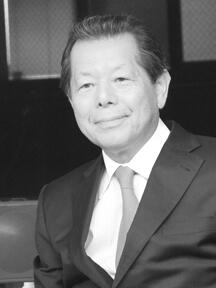
Journalism in Asia has had a long history of covering revolutions and wars. However, peace has reigned over Asia for near on 40 years. Yet, the peace and stability in Asia looks increasingly precarious. Asia too is not immune to populist nationalism. In this climate, Asia could yet again become the battleground for dislocation, revolution and war. Journalism, on top of reacting to potential crises, will be critical for proactively finding ways to prevent and defuse crises in the region.
Yoichi Funabashi is the chairman of the Rebuild Japan Initiative Foundation. He received the Shorenstein Journalism Award in 2015.

Ian Buruma is a writer and the Paul W. Williams Professor of Democracy, Human Rights, and Journalism at Bard College. He received the Shorenstein Journalism Award in 2008.
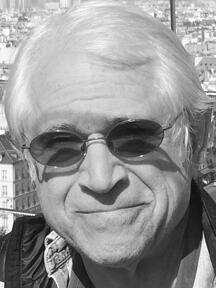
Seth Mydans is a contributing writer for the New York Times. He received the Shorenstein Journalism Award in 2009.
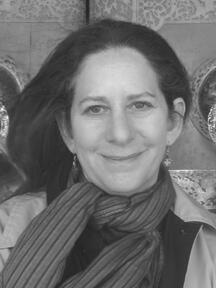
Barbara Demick is the Los Angeles Times’ bureau chief in New York and was formerly bureau chief in Beijing and in Seoul. She is the author of Nothing to Envy: Ordinary Lives in North Korea and Logavina Street: Life and death in a Sarajevo Neighborhood. She received the Shorenstein Journalism Award in 2012.

Aung Zaw is the founder and editor-in-chief of The Irrawaddy. He received the Shorenstein Journalism Award in 2013.
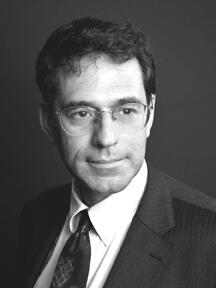
Jacob Schlesinger is a senior Washington correspondent for the Wall Street Journal. He received the Shorenstein Journalism Award in 2014.

Orville Schell is the Arthur Ross Director of the Center on U.S.-China Relations at the Asia Society in New York, and former dean of the School of Journalism at the University of California, Berkeley. He received the Shorenstein Journalism Award in 2003.

John Pomfret was a foreign correspondent with the Washington Post for many years. He is the author of The Beautiful Country and the Middle Kingdom: America and China from 1776 to the Present. He received the Shorenstein Journalism Award in 2007.





